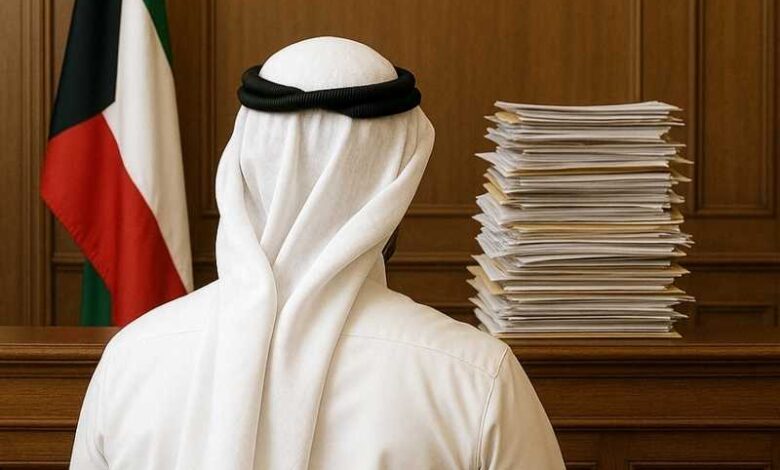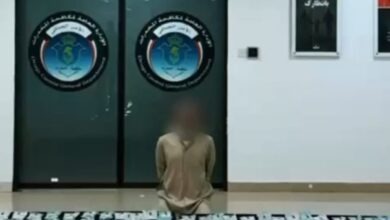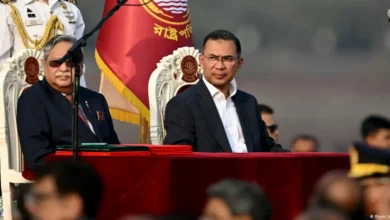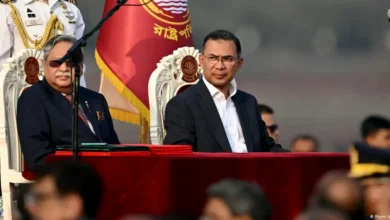Kuwait drafts tough new anti-drug law to close loopholes and curb abuse

Kuwait has introduced a sweeping draft decree-law to tighten controls on narcotics and psychotropic substances. One of the aims of the draft is to eliminate longstanding procedural gaps that have led to thousands of acquittals in drug-related cases. The proposed legislation includes stricter oversight, longer sentences, and compulsory addiction treatment under police supervision.
Unlike the previous law, which allowed addicts to check themselves out of treatment centers, the new bill mandates compulsory placement. Patients will now be admitted under police guard and cannot be released until fully recovered. This measure is designed to prevent repeated relapses and reduce the burden on families dealing with drug addiction, reports Al-Qabas daily.
- To protect the dignity of addicts and encourage treatment, the bill includes provisions to maintain the confidentiality of user data. Any breach of this confidentiality without legal justification or with the intention to harm or insult will result in up to two years in prison and a fine of 10,000 Kuwaiti dinars.
- The new draft law introduces capital punishment or life imprisonment for those found guilty of supplying narcotic or psychotropic substances in exchange for services — even through intermediaries. The same penalties apply to those who distribute such substances to minors, regardless of whether compensation is involved.
- Physicians who dispense psychotropic drugs without medical justification face three years in prison followed by a three-year suspension from practice. Those who enable drug use by being present and consenting — excluding spouses, children, and domestic workers — are also subject to the same prison term.
- Under the new law, individuals caught using steroids in sports facilities or schools face up to five years in prison. This marks a significant expansion in the definition of drug-related offenses and highlights growing concern over performance-enhancing substances.
- To reduce the pressure on public healthcare, the draft law permits the private sector to establish addiction treatment centers. This shift comes in response to the rising number of court-mandated rehabilitation orders, with drug abuse cases now accounting for 80% of cases in some courtrooms.
- A major innovation in the new law is the use of the “Sahel” app to report suspected drug users. Reports can be made anonymously, and immediate arrest of the suspect will follow. False reporters, however, will face legal penalties. The law also introduces random drug testing for students, military and security personnel, job applicants, and driver’s license seekers.
- Doctors are allowed to prescribe narcotic or psychotropic drugs for legitimate medical purposes only. They are, however, prohibited from prescribing these medications to themselves or close relatives. Violations carry heavy fines and potential imprisonment, especially in cases of repeated abuse.
- The law limits pharmacists to dispensing only single-use prescriptions issued within five days. It also bans the mailing of narcotic substances or their concealment in mixed parcels. Shipments must be fully labeled and transported through insured methods.
- Anyone who forces another to consume drugs through violence or deceit—such as secretly lacing food or drinks—faces up to 15 years in prison. If these actions result in addiction, permanent harm, or death, the penalty escalates to life imprisonment or death.
- The law imposes five to fifteen years in prison, and potentially life or death sentences, for anyone who smuggles drugs into another person’s possession without their knowledge to frame them. Penalties are more severe if the accused is detained, charged, or convicted as a result.
- Drug offenses committed in certain places—such as schools, mosques, sports clubs, prisons, or rehab centers—will carry harsher penalties, up to 15 years in prison and 10,000 dinars in fines. This reflects the government’s intent to protect vulnerable and sacred spaces from drug-related activities.
- Anyone found in possession of narcotic substances for personal use outside legal circumstances faces up to five years in prison. If the crime takes place in any of the designated sensitive locations, the sentence may increase to ten years.
- Running or maintaining a location for drug use could result in up to 10 years in prison, or 15 years if compensation is involved. Individuals found at the scene knowingly, but not residing there, may also face up to three years behind bars.
The law mandates the formation of a Supreme Council for Combating Narcotics, led by the Prime Minister or a designated minister. This council will develop national strategies, coordinate institutional efforts, and ensure treaty compliance. Articles stipulate the death penalty for major trafficking crimes, drug-related offenses involving minors or officials, and participation in organized criminal networks.
These measures reflect Kuwait’s most aggressive stance yet in combating drug abuse and trafficking.











